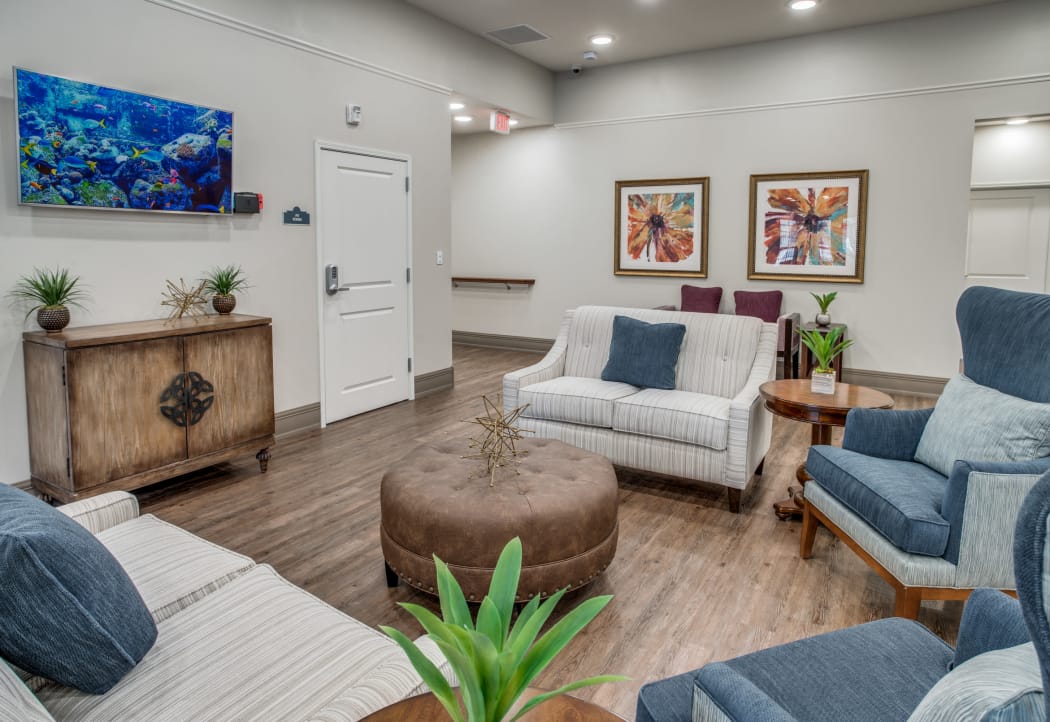Producing a Safe and Encouraging Environment: In-Home Memory Care Essentials
Establishing a nurturing and secure setting for people requiring at home memory treatment is critical to their wellness and top quality of life. From making sure safety and security within the living room to employing efficient communication techniques and applying memory-friendly design aspects, there are important parts that contribute to an alternative care approach. By concentrating on developing an encouraging community that deals with the unique needs of those with memory impairments, caretakers can substantially boost the everyday experiences of their loved ones.

Safe Living Setting
Producing a hazard-free and protected living environment is paramount when offering at home memory treatment for individuals with cognitive disabilities. Ensuring the safety and security of the individual with memory loss is essential to avoid accidents and promote a feeling of well-being.
In addition, using innovation such as movement sensors and alarms can notify caretakers if the private wanders or is in distress. By prioritizing safety measures and removing potential hazards, caregivers can supply a protected and supportive setting for individuals with cognitive impairments receiving in-home memory care.
Efficient Interaction Approaches
Carrying out tailored interaction strategies is essential in promoting meaningful communications with people with cognitive impairments in the context of in-home memory care. Effective interaction plays a vital role in developing a helpful environment that boosts the well-being and lifestyle for individuals with memory concerns. When communicating with somebody experiencing cognitive decrease, it is very important to utilize clear and basic language, maintain a calm and positive tone, and supply aesthetic cues to help understanding.
One trick strategy is to practice active listening, revealing empathy, patience, and respect during discussions. Non-verbal hints such as face expressions and body language can likewise assist communicate understanding and assistance. In addition, using reminiscence therapy by going over previous experiences or making use of music and art can take advantage of long-lasting memories, stimulating connections and stimulating interaction.
Additionally, incorporating routine routines and constant communication patterns can offer a sense of experience and security for individuals with memory problems. By implementing these interaction approaches, caretakers can develop purposeful links and promote a sense of comfort and rely on the at home memory treatment setting.
Memory-Friendly Design
Given the significance of developing a helpful atmosphere for individuals with memory concerns via efficient communication methods, the consolidation of memory-friendly style elements in the living room comes to be critical in enhancing their daily experiences and overall health. Memory-friendly style concentrates on boosting safety and security, convenience, and self-reliance for people with cognitive disabilities. Easy alterations can make a substantial distinction, such as using contrasting shades to improve visibility and decrease complication, integrating clear signs to help navigation, and reducing clutter to stop sensory overload.
Including acquainted components from the person's past, such as favored items or personal pictures, can stimulate favorable memories and create a sense of familiarity. By integrating these memory-friendly design aspects, caregivers can supply a risk-free and encouraging living room that makes it possible for people with memory concerns to keep their freedom and top quality of life. Charlotte Memory Care.
Daily Regimen Planning
When developing a daily routine for people with memory concerns, mindful preparation is vital to sustain their cognitive feature and total wellness. Establishing a structured routine can assist minimize stress and my sources anxiety, confusion, and disorientation typically experienced by those with memory disabilities. Begin by incorporating acquainted tasks that align with the individual's preferences and rate of interests. Uniformity in day-to-day regimens can offer a sense of protection and security, assisting in the conservation of cognitive capacities.
Flexibility is key, as some days might require changes based on the person's state of mind and power levels. Regularly assessing and adapting the daily schedule will help ensure its efficiency in promoting a positive and reassuring setting for individuals with memory challenges.
Support System Implementation
Establishing a durable network of encouraging people plays a critical duty in enhancing the high quality of treatment and health for people calling for memory assistance. this link Family members, buddies, health care experts, and community resources can all add to producing a strong assistance system. Interaction amongst these individuals is necessary to ensure that the needs of the individual with memory obstacles are fulfilled efficiently.
Household participants are often the primary caretakers and form the foundation of the support system. They give everyday care, psychological assistance, and friendship. It is essential for family members to seek aid and break when required to avoid fatigue and make sure the most effective feasible look after their liked one.
Along with family support, entailing healthcare experts such as physicians, registered nurses, and therapists can supply customized care and guidance. These experts can supply valuable understandings, medical recommendations, and aid in managing the individual's problem.

Conclusion
Finally, producing a helpful and risk-free atmosphere for people with memory treatment requirements is necessary for their health. By developing a risk-free you can try this out living atmosphere, using reliable communication approaches, including memory-friendly design elements, planning everyday routines, and executing a strong support system, caretakers can aid enhance the lifestyle for those with amnesia. These crucial parts collaborate to create a nurturing and empowering setting that advertises freedom and improves overall quality of life.
Developing a safe and secure and hazard-free living atmosphere is vital when offering in-home memory treatment for individuals with cognitive impairments. By focusing on security measures and removing prospective threats, caregivers can give a supportive and safe and secure environment for people with cognitive impairments getting in-home memory treatment.
Establishing a durable network of helpful people plays an essential role in improving the quality of treatment and well-being for people requiring memory assistance - Charlotte Memory Care. Communication among these people is vital to ensure that the demands of the individual with memory difficulties are met successfully

Comments on “Charlotte Memory Care: Quality Elder Coping With Memory Care Proficiency”